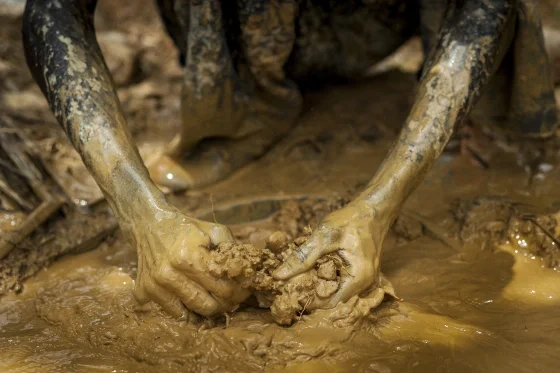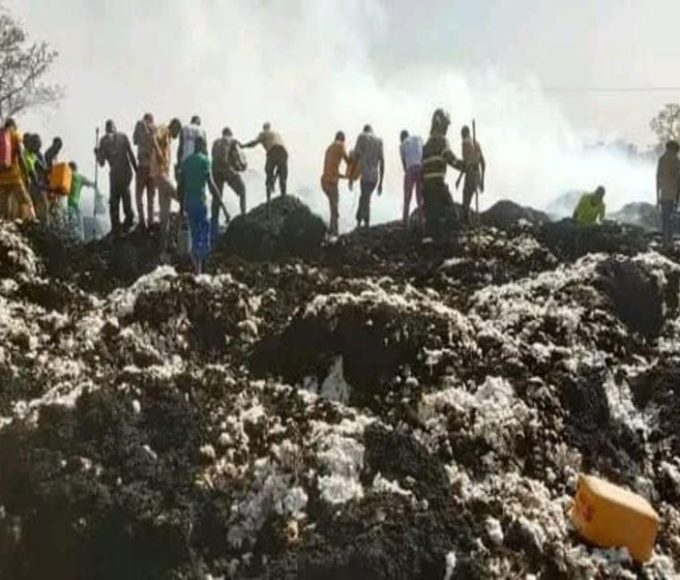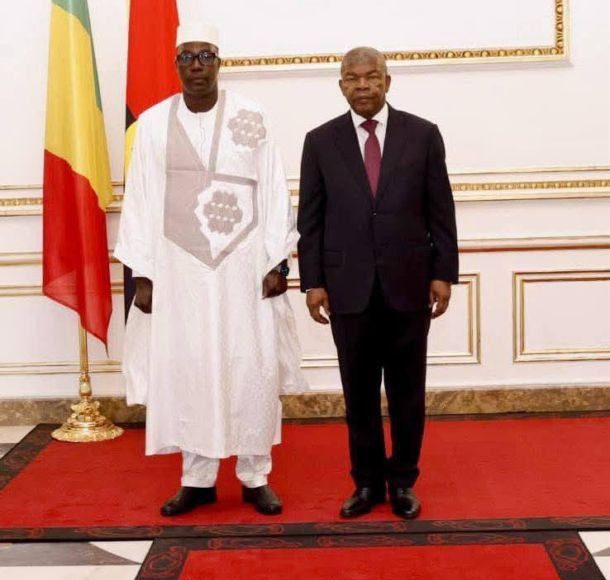
Ghana: The Impact of Galamsey on Children and the Environment

Illegal small-scale mining-commonly referred to as “galamsey” in Ghana, continues to be a thorn in the side of national and international attention for its threat of exposing children to illegal labour and environmental degradation.
This crude mining crisis has scarred Ghana’s landscape and shows the exposure of children to hazardous working conditions that have grave economic, social, and health consequences.
West Africa Weekly reported earlier this month that hundreds of Ghanaians took to the streets of Accra in a peaceful protest against unlicensed gold mining, which destroys the environment, as part of its campaign against the activities of the illegal miners, calling on the government to take more proactive measures. Some of the agitators carried placards saying, “Greed is killing Ghana,” and “Gold for the few, destruction for the many.”
Galamasey, driven by increasing gold prices and poverty, turns what should be an environmentally sound industry into an irregular source of income for more than a million informal workers who produce over two million ounces of gold a year.
Galamsey mining accounts for some 30% of Ghana’s overall gold output. The environmental and humanitarian costs of this unregulated industry are devastating. The mining is a meagre budget, done with shallow pits dug in vast areas, most of which are near rivers, and leaves the land destroyed with sources of water polluted.
With the expansion of galamsey sites, harmful chemicals such as mercury have been used in extracting gold and have thus polluted significant rivers like the Pra, Ankobra, Oti, Offin, and Birim rivers, crucial water sources for communities.
For instance, in August, Ghana Water Ltd. threatened to stop supplying treated water to residents in Cape Coast and its environs due to the high level of contamination in the Pra River.
Aside from environmental degradation, galamsey constitutes a severe humanitarian threat, especially to children. An estimated 21.8% of Ghanaian children are involved in labour, many under hazardous conditions, in the mining sector found within galamsey pits. It is dire economic conditions largely lead many families to send their children out to work and expose them to arduous and dangerous conditions.
Many children between the ages of 10 and 14 work in unlicensed mines outside Ghana’s labour laws, either as school drop-outs or out-of-school.
The economic dependency on child labour gives way to insufficient educational opportunities, thus maintaining the vicious cycles of poverty well into successive generations. These communities are now synonymous with higher social ills, such as increased prostitution and the proliferation of sexually transmitted diseases.
Despite that, Ghana has ratified conventions initiated by the International Labour Organization, including those on the minimum working age and prohibition of the worst forms of child labour. Its enforcement, however, remains weak, and with limited resources and poor monitoring, these abuses are difficult to address effectively.
With election time drawing near, galamsey is a crucial talking point. There is growing pressure for political leaders and candidates to do more-regulate better, enforce laws, and offer alternative livelihoods that would protect the environment of Ghana and its children.
Read Also: Niger to Build New Oil Refinery to Boost Energy Independence in the Sahel
Nigerian House of Reps Urges MDAs to Establish Climate Change Desk
Survivors of Rwanda’s 1994 Genocide Accuses France of Being ‘Complicit’
About The Author
Related Articles
Zimbabwe Rejects $350m US Health Deal Over Sovereignty Dispute
Zimbabwe has formally withdrawn from negotiations on a proposed $350 million health...
ByWest Africa WeeklyFebruary 25, 2026Niger’s President Outlines Vision for Strategic Partnership with China
Niger’s Head of State, General Abdourahmane Tiani, has articulated a renewed vision...
ByWest Africa WeeklyFebruary 25, 2026Fire Destroys 140 Tonnes of Cotton in Western Burkina Faso
A major fire has destroyed more than 140 tonnes of cotton in...
ByWest Africa WeeklyFebruary 25, 2026Mali’s New Ambassador to Angola Presents Credentials, Pledges Stronger Bilateral Ties
Diplomatic relations between Mali and Angola entered a new phase on February...
ByWest Africa WeeklyFebruary 25, 2026












Leave a comment